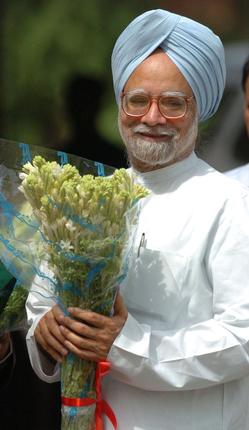New Delhi, October 19: India and Russia are wrapping up talks on Kudankulam reactors 3 and 4 and will “shortly” sign relative contracts, Prime Minister Manmohan Singh said reinforcing speculation that the deal may not be sealed during his coming visit to Russia.
“Indian and Russian companies have been holding negotiations on finalising arrangements for Kudankulam units 3 and 4, and I am confident that these contracts would be finalised shortly,” Mr Singh told Russian journalists ahead of his summit with Russian President Vladimir Putin on October 21.
Indian officials earlier said they were working to “reconcile” the Civil Liability for Nuclear Damage Act with international law to clear obstacles to the Kudankulam deal.
Dr. Singh reiterated India’s commitment to the “full implementation” of a roadmap India and Russia approved in 2010 for the construction of 14 to 16 nuclear reactors in India.
The Prime Minister signalled India’s desire to seek bigger foothold in Russia’s energy sector, describing it as a “priority” area for bilateral cooperation.
“We are looking to enhancing our participation in the Russian oil and gas sector. We are examining the feasibility of a proposal for direct surface transportation of hydrocarbons from Russia to India,” the Itar-Tass news agency quoted Dr Singh as saying.
The two sides last month agreed to set up a joint study group to look into the construction of an oil pipeline from Russia to India via Afghanistan and Pakistan.
Dr. Singh hailed the development of the fifth generation fighter aircraft and the multi-role transport aircraft as “two flagship projects” between India and Russia that “symbolise the transformation of our defence cooperation from a buyer-seller relationship of the past to one that now also involves joint design, development and production of advanced defence platforms.”
The Prime Minister called for an early signing of a free trade pact between India and the Customs Union of Russia, Belarus and Kazakhstan in order to expand India’s economic ties with the former Soviet states.
Dr. Singh said he “applauded” Mr Putin’s efforts to resolve the Syrian conflict and “fully supported” the Russia-U.S. plan to rid Syria of its chemical weapons.
The coming Indo-Russian summit will be the 10th one for Mr Singh who over the years developed perfect chemistry with Mr Putin. Mr Singh said he greatly valued his “close and friendly relations” with the Russian leader.
Officials familiar with restricted format meetings between Mr Singh and Mr Putin say they are marked by extraordinary trust and goodwill in discussing the most sensitive areas of bilateral cooperation and global affairs.
To this day Russia is the only country with which India holds bilateral summits on an annual basis, a tradition established 14 years ago and never interrupted. It is also the only country with which India has a minister-level commission on defence, which also meets every year.
China visit
From Moscow, the Prime Minister flies to Beijing on October 22 for a meeting with his counterpart Li Keqiang on October 23, his second in six months. He will be hosted a luncheon banquet.
Dr. Singh will also be meeting President Xi Jinpeng, who will host a dinner banquet, a rare honour for an Indian leader after such a courtesy was extended to Jawaharlal Nehru in the fifties.
Border issues
The focus of the visit to China will be the proposed landmark Border Defence Cooperation Agreement (BDCA) to avoid face offs between the two armies along the disputed Line of Actual Control, which officials are hopeful of clinching next week.
The BDCA, which provides for ‘no tailing’ of each other and ‘no shooting’ by troops of both sides, is expected to boost steps to maintain peace, tranquillity and status quo on the border with China.
Coming against the backdrop of the longest face off in Depsang valley in Ladakh this summer, where PLA troops stayed put for over 20 days, it will be a step forward over the 2005 accord that set out standard operating procedures and be part of the confidence building mechanism between the two countries.

